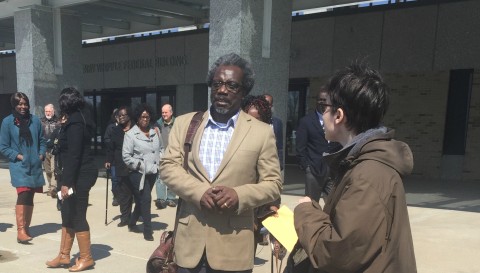Augsburg University rallies around professor facing deportation
The Lutheran school and local officials have called for Mzenga Wanyama and his family to stay.

Uncertainty is the word for a Kenyan American couple in Minneapolis facing the possibility of being forced to leave the U.S.
After more than 25 years here, Mzenga Wanyama, a tenured professor of English at Augsburg University, and Mary Mzenga, a nursing student at the school, which is affiliated with the Evangelical Lutheran Church in America, were told by Immigration and Customs Enforcement in March that they would need to return to Kenya for at least two years before applying for permanent residence or another visa.
Their situation has sparked protests by Augsburg students at ICE offices and drawn the support of the faculty, the university president, and local politicians, including the mayor of Minneapolis and the governor of Minnesota.




